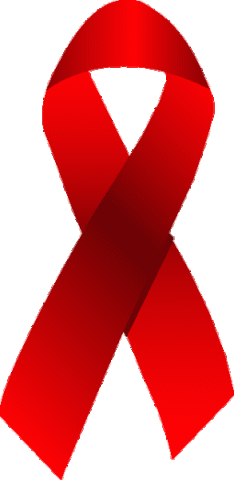Northern Ireland’s new HIV and STI figures on the rise

The Public Health Agency (PHA) is marking World Aids Day (Dec 1) by publishing the ‘HIV and STI surveillance in Northern Ireland 2011’ report, which highlights the that number of new HIV diagnoses in Northern Ireland rose by 20%, from 66 in 2009 to 79 in 2010.
It is clear from the report’s findings (of most recent figures, 2010), that there is still a challenge to reduce the rates of infection for HIV and Sexually Transmitted Infections (STIs).
The number of new HIV diagnoses in Northern Ireland rose by 20%, from 66 in 2009 to 79 in 2010. Fifty three of these occurred in men who have sex with men (MSM), the largest ever annual number for this group recorded in Northern Ireland. The majority of MSM cases are acquired within the UK, whereas the majority of heterosexual cases are acquired abroad. There are now 474 people living with HIV infection in Northern Ireland, an increase of 12% compared with 2009.
The report shows that overall, new STI diagnoses increased by 6% compared with figures for 2009. While uncomplicated chlamydia infections showed a slight decline from 2009 (down by 4%, to 1,832 cases in 2010), diagnoses of the other main infections increased::
- uncomplicated gonorrhoea increased by 13%;
- genital herpes simplex (first episode) increased by 18%;
- genital warts (first episode) increased by 2%;
- non-specific genital infection increased by 14%;
Dr Neil Irvine, Consultant in Health Protection, Public Health Agency, said: “We want to take the opportunity presented by World AIDS Day to raise awareness about HIV and STIs. While young people and MSM are particularly at risk, the safer sex message applies to everyone. We know people may be infected with HIV and STIs without having any symptoms, so it is important to protect yourself and to stop the spread of infection to others. Use condoms, limit the number of your sexual partners, and get checked at your GP surgery or your local Genito Urinary Medicine (GUM) clinic, if you have put yourself at risk.”
For information or advice on STIs, or to discuss any sexual health issue, contact your local GUM clinic or your GP.
Further information on HIV and STIs can also be obtained from the ‘Health Protection’ Directorate, on the PHA website and by downloading the PHA booklet Don't gamble with your sexual health, from the ‘Publications’ section of the PHA website, www.publichealth.hscni.net
PHA Press Office, Ormeau Avenue, on 028 9031 1611
- 79 new first-UK HIV diagnoses were made in Northern Ireland during 2010, an increase of 20% on 2009 (66); 474 HIV-infected residents of Northern Ireland received HIV-related care during 2010, an increase of 12% on 2009 (423); 58 new diagnoses of infectious syphilis were reported during 2010, an increase of 4% on 2009 (56).
- In Northern Ireland GUM clinics during 2010:
- New STI diagnoses increased by 6%; 7,838 in 2010 compared with 7,417 in 2009.
- New diagnoses of uncomplicated chlamydia decreased by 4%; 1,832 in 2010 compared with 1,906 in 2009.
- New diagnoses of uncomplicated gonorrhoea increased by 13%; 203 in 2010 compared with 180 in 2009.
- New diagnoses of genital herpes simplex (first episode) increased by 18%; 410 in 2010 compared with 346 in 2009.
- New diagnoses of genital warts (first episode) increased by 2%; 2,120 in 2010 compared with 2,086 in 2009.
- New diagnoses of non-specific genital infection increased by 14%; 2,752 in 2010 compared with 2,406 in 2009.HIV (Human Immunodeficiency Virus) is a virus that, after exposure, infects the cells of your immune system and destroys or impairs them. Your body is then less able to fight off other infections. AIDS (Acquired Immune Deficiency Syndrome) is the most advanced stage of HIV infection.
- HIV is transmitted through contact with bodily fluids such as blood. Within Northern Ireland, most transmission occurs through unprotected sexual intercourse with an infected person. However, HIV can also be transmitted by sharing contaminated needles, and from mother to baby. There is no cure for HIV, but early treatment with highly active antiretroviral therapy (HAART) can help ensure near normal life expectancy.
- The ‘HIV and STI surveillance in Northern Ireland 2011’ report is available, from 1 December 2011, by clicking here.
